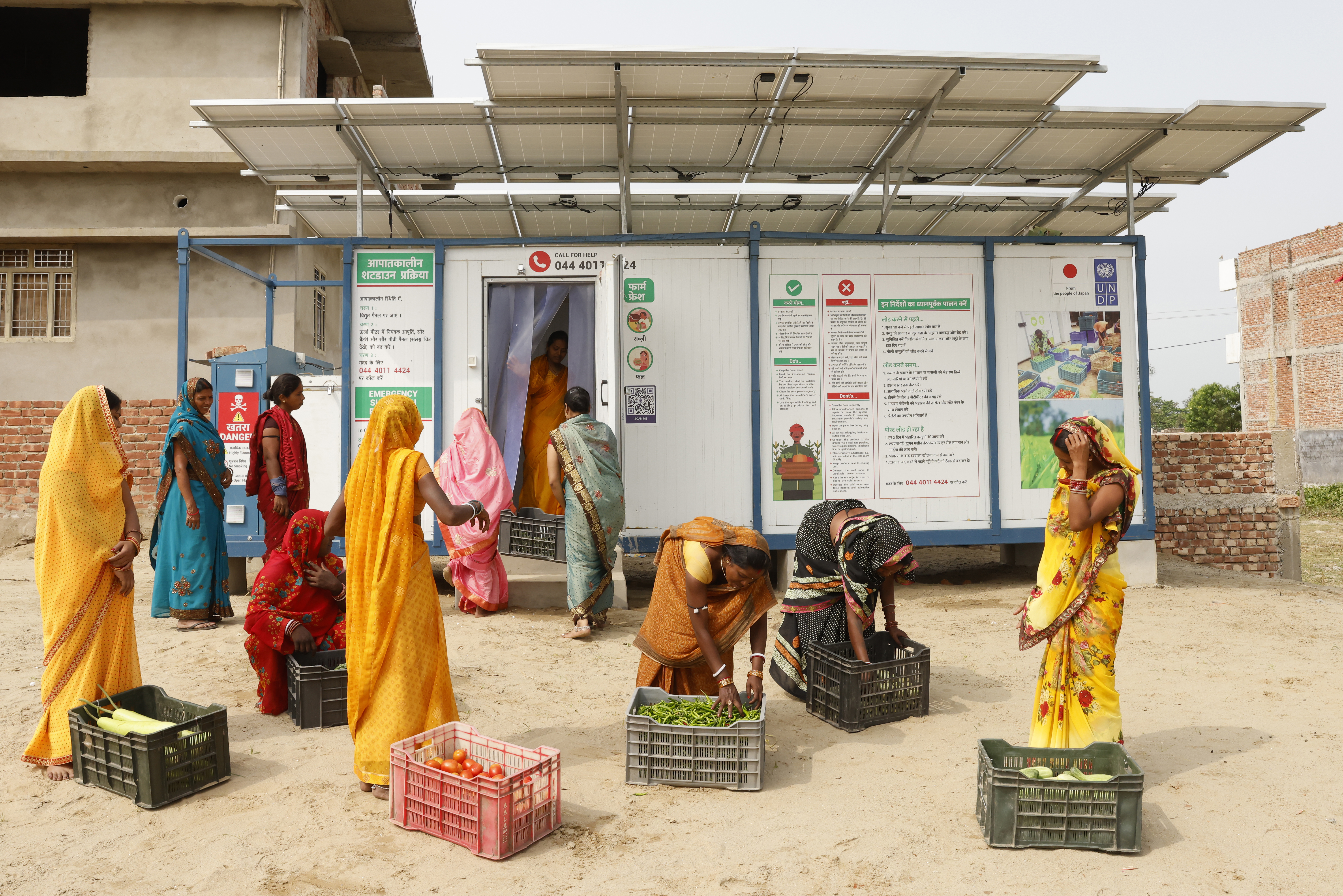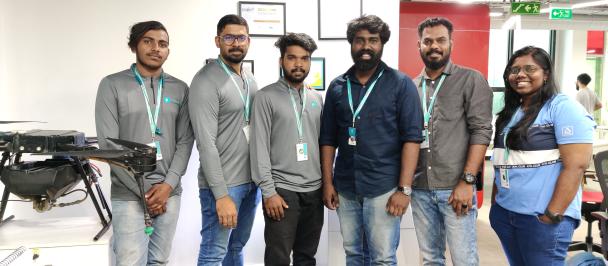Sunlit future: Harnessing Solar Power to help women farmers combat climate change
March 12, 2024

Women farmers using solar powered cold storage
“The weather is so unpredictable these days — we are at a loss. When we expect rain, there is none, and then suddenly, it pours so heavily that most of our crops wash away,” says Chanda Devi, a smallholder farmer from Bukhari village in the northern state of Bihar, as she points at the rolling clouds in the sky. This unpredictability, coupled with inadequate cold storage facilities often leaves farmers in a precarious situation.
Bihar, located in the fertile Indo-Gangetic plains, relies heavily on agriculture, with over 75% of its populace engaged in farming and related activities, contributing nearly a quarter of the state's GDP. However, smallholder farmers like Chanda are extremely vulnerable to the adverse impacts of climate change, disrupting the traditional agricultural cycle and threatening their crops and incomes.
On top of that, without proper storage facilities, even the crops that survive the weather's whims are at risk of wastage, further cutting into farmers' already slim profits.
According to a study by the Ministry of Food Processing Industries, in 2022 India lost between 5 to 13% of its fruits and vegetables between harvesting and consumption, highlighting the need for a robust cold storage infrastructure at the last mile to minimize these losses.
“Even if we are able reap the harvest safely, we have no safe place to store the crop. Perishable items like vegetables spoil very quickly, so we are forced to sell all our crops at once at a low price,” Chanda highlights.

Chanda Devi from Majhaulia Village, Muzaffarpur City in Bihar
To help farmers like Chanda build resilience against climate-related uncertainties and protect their harvest, UNDP, and the Government of Bihar, with support from the Government of Japan, have established 15 solar-powered cold storage units in the state.
Solar-powered cold storages are an innovative and sustainable solution to boost farmer income and food security. These systems harness renewable energy from solar panels to power cold storage units at much lower rates than grid-based electricity. Solar energy is clean and renewable, and these setups also help curb carbon emissions.
Furthermore, the units are particularly advantageous in regions with limited grid electricity infrastructure or irregular power supply. These systems allow farmers to store their goods for extended periods without spoilage, helping them access more markets to secure better prices for their produce.

"I mainly grow cauliflowers and gourds. By storing them safely, I sell them during the wedding season, when demand for vegetables is high. My income went up by almost 50% in 2023,” says Chanda.
With more money in her hand, Chanda is now able to meet household expenses and save for her children’s education, securing the future of her family.
What is also unique about these cold storages is that they are owned and maintained by women-led Farmer Producer Organizations (FPOs) and Self-Help Groups (SHGs), empowering them to participate in market auctions and take control of their finances, an area within the agriculture sector which has been traditionally dominated by men.

So far in Bihar, 5,000 women have joined these groups, and more than 300 tonnes of vegetables and fruits have been stored in these cold storages, preventing nearly US$25,000 worth of produce from spoilage. The initiative is now sensitizing more farmers to store their perishable crops in cold storages and will promote knowledge sharing among SHGs on emerging technologies in climate resilient farming for small farmers.
As solar technologies become integral to agricultural practices, they not only foster resilience in farming communities but also contribute towards mitigating the broader impact of climate change on our planet.
“In this little farm, every seed planted is a promise, and every harvest is a victory. Growing food is not just a job, it is our way of ensuring a future on this land,” beams Chanda, looking at the sprawl of vegetables in front of her.
Partner's Speak
“The transfer of solar-powered cold storage units to Jeevika serves as a dual-purpose solution, promoting sustainability and environmental conservation while simultaneously tackling the real-world hurdles encountered by rural farmers. These units empower farmers by providing them with increased oversight over their agricultural goods, fostering economic stability, and bolstering their market presence. This collaborative effort with UNDP and Government of Japan signifies a constructive stride towards enhancing the resilience of farmers.”Mr. Raj Kumar, CEO, Jeevika Women’s Farmer Producer Company, Bihar State Rural Livelihoods Mission

 Locations
Locations

